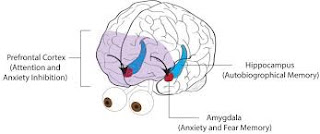Housing demand has continued to gain momentum since the start of the year and in the third quarter, the number of applications for home loans was at its highest level in more than three years, according to the latest statistics from BetterBond, SA’s foremost bond originator.
In addition, says CEO Carl Coetzee, the total number of bonds actually granted was a whopping 19,2% up in the 12 months to end-September compared to the previous 12 months.
And an increasing percentage of home loan grants are going to first-time buyers, which is an indication that the overall size of the real estate market in SA is growing. The BetterBond statistics* show that 38,3% of bond grants went to first-time buyers in the 12 months to end-September compared to 32,6% in the previous 12 months.
This aligns with figures that show significant increases in the percentages of bonds being granted in the lower price categories usually favoured by first time buyers, the most notable being a 6,3% increase year-on-year in the percentage of bonds granted for homes priced at between R1m and R1,5m.
Nevertheless, he notes, the biggest percentage (44%) of bonds granted in the 12 months to end-September was for homes priced at between R500 000 and R1m. By contrast, only 4% of bonds granted were for homes costing more than R3m.
“The lower end of the market is definitely where most of the action is at the moment, and this is confirmed by the latest figures from the Reserve Bank, which show that despite the significant increase in the number of bonds granted, the overall value of outstanding mortgages has only risen by some 4,9% in the past year.”
There are two main reasons for the recent surge in home buying activity, says Coetzee, the first of which is the increase in affordability due to the glacial pace of property price growth compared to that of income growth, especially in the past 12 months.
According to the BankservAfrica Take-Home Pay Index (BTPI), which tracks trends in SA salaries derived from the salary payments made to around 3-million employees, the average take home pay amount has shown a year-on-year increase every month since the start of 2018, and these increases have often exceeded the rate of inflation. In July, for example, the average take home pay was R15 630, which was 5,3% up on July 2018, while the year-on-year increase in inflation was only 4%.
“Meanwhile, home prices have been growing at a much slower rate than inflation, and in the 12 months to end-September were only 2,24% higher, on average, than in the previous 12 months.”
The second positive factor for the market, he says, has been the banks’ recognition of this increase in affordability and strong competition to gain new home loan business. “This has led to them being willing to lower the deposit percentages required to qualify for home loans, and to grant loans at much more favourable interest rates – especially to borrowers applying through reputable originators like BetterBond.”
The BetterBond statistics (see Mortgage Monitor attached) show a 3,6% increase in the average size of bond granted – and a 5,9% increase in the average size of bond granted to first-time buyers.
“The size of deposits as a percentage of home purchase price has declined accordingly,” says Coetzee, “and at the same time we have seen an increased variance in the interest rates that banks are willing to offer, with the average now being at least 0,5% per application.
“This can make a significant further difference to the affordability of the property, with a 0,5% concession on a home loan of R1m, for example, translating into annual savings of almost R4000 off the buyer’s bond repayments, and more than R80 000 in interest over the 20-year life of the loan.”
Affordability will be further boosted, he says, if here is another interest rate decrease in November or early next year, “and we anticipate that this will consolidate the market turnaround that has already begun and lead to higher home price increases over the next 18 to 24 months.”
(To see the potential savings on different size bonds, borrowers can use the
Better Rate Calculator.
*BetterBond is SA’s biggest bond originator, accounting for 28% of all new mortgage bonds registered in the Deeds Office annually, so its statistics are a reliable indicator of real estate market trends.
 Anne-Marie Bamber is Norgarb Properties dedicated Home Loans Consultant. She has over 15 years’ experience in assisting clients with their Home Loan needs and has placed many happy families in their dream homes.Contact her today for no cost stress-free home-buying.Anne-Marie BamberHome Loans consultantTel: +27 (0)21 851 3568 | Fax: +27 (0)21 441 1494 | Cell: +27 (0)82 071 1665E-mail: anne-marie.bamber@betterlife.co.za
Anne-Marie Bamber is Norgarb Properties dedicated Home Loans Consultant. She has over 15 years’ experience in assisting clients with their Home Loan needs and has placed many happy families in their dream homes.Contact her today for no cost stress-free home-buying.Anne-Marie BamberHome Loans consultantTel: +27 (0)21 851 3568 | Fax: +27 (0)21 441 1494 | Cell: +27 (0)82 071 1665E-mail: anne-marie.bamber@betterlife.co.za











































